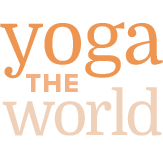To doubt is to learn
I like questions.
Don’t get me wrong: I like answers too.
But questions have always been more important than answers in terms of nudging me in the right direction.
Let me give you an example.
In broad strokes, early formal education is about providing answers to questions someone else formulated. How to solve an equation, how to conjugate a German verb, how did Second World War start, what even are statistics. As a student, we get to receive the answers, but rarely are we in a position to prioritize the questions. Until much much later, through apprenticeships, continued education, graduate degrees: these are spaces where we define our own questions. And as a result, the answers feel much more relevant to our lives, easier to comprehend, and the lessons more seamlessly integrated.
Put bluntly: if someone else formulates and prioritizes the questions, I can memorize and regurgitate the answer in order to avoid a bad grade, but it won’t be part of who I am.
This is how I think about organized religion. Faith-systems that discourage questions may nominally create followers — people who want to avoid getting a “bad grade” with their faith leaders — but the rigid answers provided are not part of who they truly are. It is only the faith that comes with walking into the world with curiosity and oodles of personally motivated questions that persists. Because that faith answers the relevant questions: the ones we each ask.
I sat with that notion this morning. Questions, curiosity, doubt is the foundation of any true learning process, whether we are looking into exploration of self, our community, or why we are here.
This month of September, I am focusing on foundations in all my online classes, and this is another big one: approaching yoga asana practice with curiosity, doubt, and questions, regardless of how long each person has been practicing.

